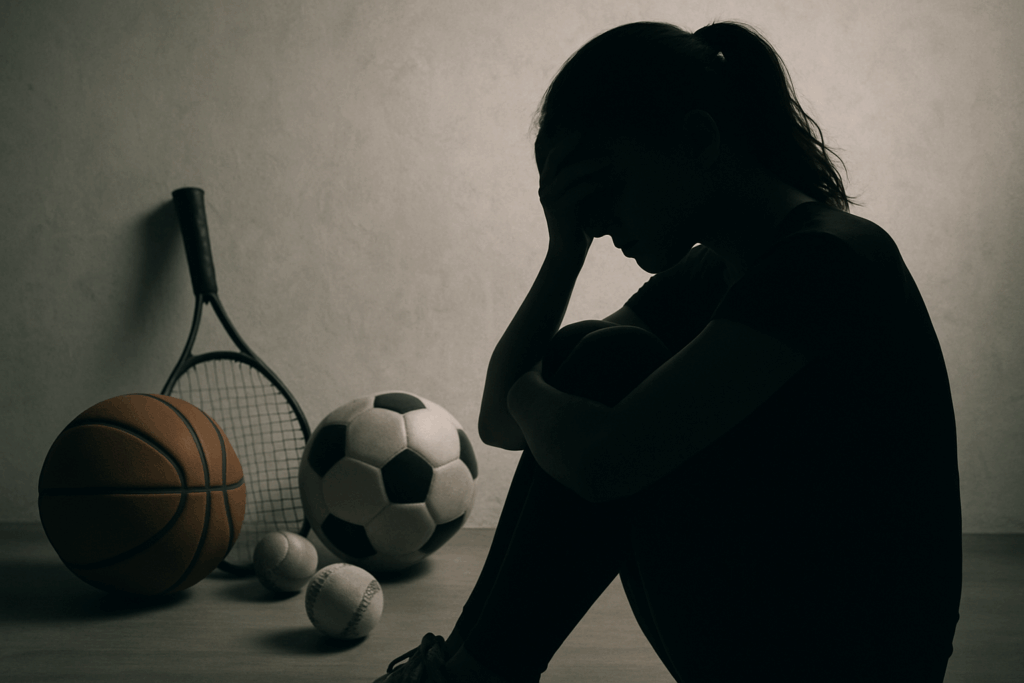
Recently, a number of high-profile stories have highlighted the ongoing problem of harassment and abuse in women’s athletics.
Sexual harassment is not confined to back alleys or anonymous messages online. It happens everywhere, and sports are not exempt. Female athletes are unfairly expected to endure abuse and ignore harassment. There are often negative consequences for women who dare to speak up.
Recent incidents of sexual harassment in sports raise critical questions about power, consent, and safety for women in sports.
Consent needs to be part of the conversation about harassment in sports
The celebration that followed Spain’s women’s team winning the World Cup in 2023 included a very public, sexual privacy violation. Luis Rubiales, the president of Spain’s Football Federation, forcibly kissed one of the players, Jenni Hermoso, on the mouth.
Hermoso clearly did not want or consent to the kiss. Law enforcement brought charges against Rubiales and he was convicted of sexual assault and ordered to pay a fine of €10,800.
Some people downplayed the non-consensual kiss and accused Hermoso of overreacting. But the highest court agreed that the act was indeed a crime. While the verdict and sentencing may have brought some sense of justice, they did not undo the harm caused.
Now, a few seasons since the unlawful kiss, Hermoso seems to be facing punishment for holding Rubiales to account. Hermoso is Spain’s top scorer, but has been left off the national team again. The coach has claimed that she left Hermoso off the team to “protect” her and for other reasons unrelated to the unlawful kiss.
The harsh reality is that many female athletes (and women in all professions) pay a price for their courage to stand up to sexual harassment. Until consent is treated as non-negotiable in every setting, including sports, harassment will continue to be excused. Accountability will remain the exception, not the rule.
Elite athletes aren’t even safe from stalking and harassment
Tennis star Emma Raducanu was recently forced to stop a tennis match in Dubai after spotting her stalker in the stands.
Raducanu later said she “couldn’t see the ball through tears” and struggled to breathe after recognizing a man in the crowd who had been stalking her. This man had already approached her twice during the tournament. This was after he harassed her at matches in Singapore, Abu Dhabi, and Doha in the preceding weeks. Even at a high-profile, ticketed event with strict security measures, Raducanu couldn’t escape her stalker.
Following the Dubai incident, the stalker signed a pledge to maintain his distance from the tennis star. But then his name was discovered (and fortunately banned) on the list for tickets to see Raducanu play at Wimbledon!
If someone like Emma Raducanu, with resources, legal support, and security, can’t escape her stalker in public arenas, what hope do private individuals have against determined harassers?
Unfortunately, many systems are reactive rather than preventative. They often fail to take harassment seriously until after real harm is done. This isn’t about flattery or fandom. It’s about power, control, and the alarming ease with which a stalker can breach even the tightest barriers.
Our systems must do better to protect athletes and all people from misconduct.
Harassment in sports is often ignored
Alex Cooper, the wildly successful host of the podcast Call Her Daddy, recently released a documentary in which she publicly spoke for the first time about the sexual harassment she endured as a college soccer player.
Cooper shared how her college soccer coach made inappropriate comments, initiated unwanted physical contact, and treated her in ways that felt invasive, uncomfortable, and controlling. Cooper’s parents got involved and reported the coach to the school. But nothing happened.
The Coach stayed on the team and Cooper quit to protect herself.
This story is repeated over and over in youth, high school, collegiate, and professional sports. Many people in power look the other way when inappropriate, dangerous, or illegal behavior is reported against a successful coach.
The message to athletes—especially women—is clear: your safety is secondary to success, your discomfort is a price to pay for opportunity, and speaking up will likely lead to silence or retaliation. This culture of complicity enables abuse and discourages reporting. Survivors are forced to choose between their passion for the sport and their personal wellbeing.
True progress in sports will require a commitment to accountability, transparency, and a culture where abuse is addressed—not buried. Until then, stories like Cooper’s will continue to emerge, not as outliers, but as symptoms of a system that has too often failed to protect its players.
Harassment in sports isn’t just an elite athlete problem
If world-class athletes with fame, resources, and visibility are stalked, silenced, and punished for speaking out, what does that say about the safety of women and girls with far less support?
We need to shift the culture. Changes are not only needed in elite sports, but across youth leagues, school teams, college athletics, and professional organizations.
Athletic departments, coaches, and sports leaders must take prevention seriously. They must bring in educators, invest in ongoing training, and make conversations about respect, consent, and accountability a regular part of the game.
When women can’t safely compete, coach, or even exist in athletic spaces, it’s not just a sports issue, it’s a reflection of how deeply our systems are failing.
If your school, team, or athletic department needs Title IX help or wants to learn about sexual misconduct and online abuse prevention, we’re here to help. We offer customized consulting and training services as well as Title IX investigations. Don’t hesitate to contact Lindsay Lieberman Law and Consulting to see how we can support you!
